When the time came, Taylor Ziegler, a fourth-year medical student, was excited for a chance to help care for patients with COVID-19.
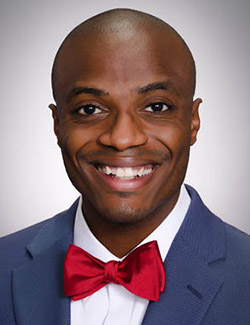 | 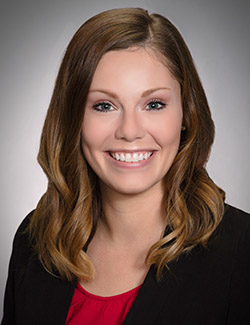 |
Oladapo Akinmoladun | Taylor Ziegler |
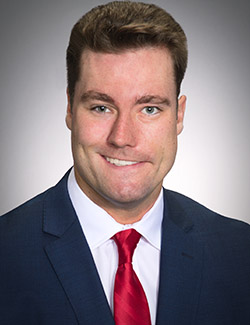 | 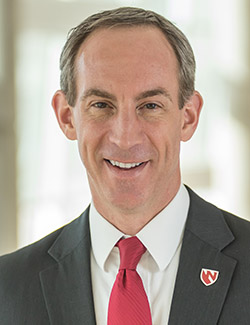 |
Cale Ewald | Kelly Caverzagie, MD |
“Ultimately, I’m pursuing a career in critical care, and that comes with working with very ill patients who may have some sort of infectious disease,” said Zeigler, who is currently taking part in her critical care-anesthesia rotation. “This was the perfect opportunity, now while I’m still somewhat protected as a student, to get involved with caring for patients with an infectious disease, and learn how to manage that.”
In March, as the pandemic was first taking hold in the United States, UNMC and all academic medical centers suspended treatment of patients by students. While students returned to caring for patients in early July, they were still not allowed to see COVID-19 patients. As understanding of the disease has increased, however, the university reversed that decision in November.
“When they put us on hold for a couple of months, there was a lot of frustration — as I’m sure there was with medical students across the country,” said Oladapo Akinmoladun, another M4 in the critical care rotation. “This was an opportunity to help people during a once-in-a-century health crisis.”
Akinmoladun said he was excited to begin working with COVID-19 patients later in his rotation.
“At a time when things start getting more difficult and you’re called to do more, as a fourth-year medical student, I’m ready to throw my hat into the ring.”
Cale Ewald, another M4 on the same rotation, agreed.
“The reality is that when I am out in residency within the next six months, it’s going to be something that I’m probably still facing, or patients will be facing the repercussions of this disease down the line,” Ewald said. “So being prepared and having that experience will be valuable as a future practitioner.”
Kelly Caverzagie, MD, associate dean for educational strategy for the college, said that, even as hands-on care by students was paused, college and university leaders knew that at some point, the students would begin caring for COVID-19 patients.
“If our students couldn’t care for COVID patients, then they would have suboptimal educational opportunities,” Dr. Caverzagie said. “We wanted to be sure that the students had adequate opportunities for education.”
The students’ arrival in the patient-care arena also provided some respite for the frontline health care workers who had been involved in COVID-19 care from the beginning of the pandemic.
“The people who have been doing this since February and March, I have so much respect for them,” Zeigler said. “Even in the week and a half I’ve been here, I’ve seen how emotionally taxing this is. Even if we are just providing a little help with small tasks here and there, they can use every bit of help.”
Akinmoladun said he sees determination in the people he’s working with.
“I see good attitudes and people pushing through things,” he said. “Things have been difficult, things have been challenging, but overall, these professionals have been really inspiring.”
Ewald said the university has been mindful of the students’ safety.
“We have access to the same PPE everyone else uses and get the same training for safety,” he said. “Of course, there is a level of individual responsibility you do have to take to make sure you are being safe and not endangering other people outside the hospital or on your team. But everything is there for us to be successful in that aspect.”
Akinmoladun agreed. “The school has done a really good job of providing us with the necessary support that we need to be protected.”
Dr. Caverzagie said he was not surprised at the way medical students have stepped up.
“They just demonstrate what we have seen throughout their medical student careers, and the medical student careers of every student who has graduated from UNMC,” he said. “That is, a dedication to their patients, a willingness to actively support their team, and a commitment to the education and preparation they’ll need to become a highly trained and highly skilled resident and physician.”
Zeigler said she was proud to be a medical student at UNMC during this health crisis.
“We are so fortunate to have, here in Nebraska, some of the top knowledge, research, faculty and resources for dealing with this pandemic,” she said. “I’m grateful to have this institution here.”
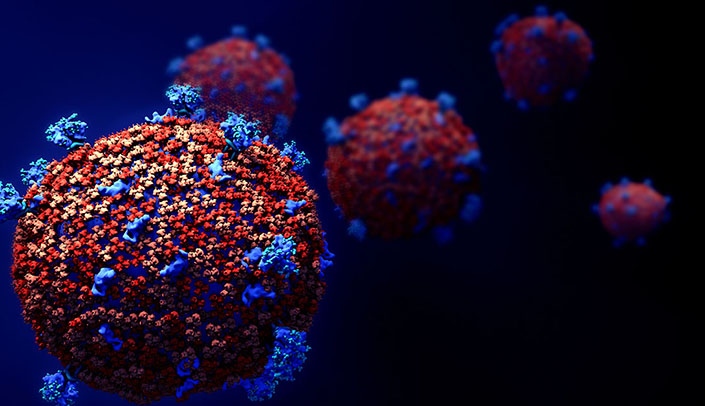
What an awesome story! Keep up the good work and I am excited for your futures!